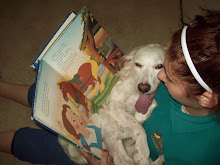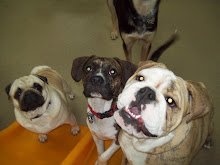Elementary Winter Safety for Your Pet
With Jack Frost nipping at those cold, wet noses, keeping your pet safe is essential. Best Friends pet experts offer the ABC's of winter pet care:
Avoid antifreeze spills. Pets love the sweet taste and will lap it up when it is not properly stored or disposed of. Anti-freeze poisoning requires immediate veterinary treatment.
Bang on the hood of your car before starting it. Outdoor cats have been known to sleep under the hoods of cars, where it is warmer.
Clean your pet's paws, legs and belly after being outside. Salt and chemicals used to melt ice may stick in a pets' pads or coat, causing illness if it is licked off.
Dress your pet for the weather. Short haired breeds, puppies and kittens may need a sweater or coat. Even long-haired dogs who enjoy the brisk weather should have access to a warm, dry shelter. Be sure not to leave any dog outside too long when the temperature is below freezing.
Exercise your pet! Active play or an invigorating walk will keep blood flowing and weight down. Some time spent with you will also do wonders keeping the winter blues away.
Feed accordingly - dogs who spend time outdoors in the cold need extra food for energy. Those who prefer to laze in the warm indoors may need to lower their calorie intake to compensate for less exercise.
Guard your pets when they cuddle up in front of the fireplace. It may be warm and cozy, but sparks and cinders present a danger. Watch for any respiratory problems from fumes, especially in older pets.
Have plenty of fresh water available at all times. Be sure outdoor water bowls do not freeze over, and avoid using metal dishes.
I.D. tags should be kept on your pet at all times. Pets who are off leash can lose their scent in ice and snow. More dogs are lost in winter than in any other season.
Join a Doggie Daycare or playgroup. It's a great way to keep your pet active and sociable.
Keep up your pet's regular grooming routine. The increased heat and low humidity in a home can result in dry skin and shedding. Frequent brushing helps remove dead hairs and skin, and stimulates oil glands.
Lakes and ponds pose a particular threat. A pet can fall through the ice, and not be able to climb out on his own. Keep your pet with you at all times.
Most importantly, use common sense and exercise caution. Enjoy the snow and brisk temperatures, and then enjoy a warm cuddle with your best friend.
*This information was taken form bestfriendspetcare.com
From Now on "Like" us on Facebook!
14 years ago







No comments:
Post a Comment